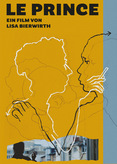Fürst Nachljudow erkennt als Geschworener in der des Giftmordes angeklagten Prostituierten Maslowa das Mädchen Katjuscha wieder, das er als junger Offizier verführt und sitzengelassen hat. Während des Prozesses wird ihm deutlich, daß er an ihrem Abstieg zur Dirne schuld ist. Als die Maslowa unschuldig zu mehreren Jahren Zwangsarbeit verurteilt wird, beschließt Nechljudow, ihr zu helfen, und folgt ihr in die Verbannung nach Sibirien.
Nechljudow folgt im zweiten Teil der 'Auferstehung' Katjuscha in die Verbannung. Nur langsam begreift Katjuscha, daß hier ein Mensch wirklich sühnen möchte. Sie lohnt seine Bemühungen mit dankbarer Achtung, ohne ihn lieben zu lernen. Während des Transports nach Sibirien erreicht sie die Nachricht ihrer Begnadigung. Dennoch wird Katjusche weiterziehen, als Frau eines politischen Gefangenen, der sie braucht - es ist ihre Auferstehung.
Prince Nachlyudov, as a juror, recognizes the prostitute Maslova, accused of poisoning, as the girl Katyusha, whom he seduced and abandoned as a young officer. During the trial, it becomes clear to him that he is to blame for her descent into a prostitute. When Maslova was innocently sentenced to several years of forced labor, Nekhlyudov decided to help her and followed her into exile in Siberia.
In the second part of the 'Resurrection', Nekhlyudov follows Katyusha into exile. Only slowly does Katyusha understand that a person really wants to atone here. She rewards his efforts with grateful respect, without learning to love him. During the transport to Siberia, the news of her pardon reaches her. Nevertheless, Katyusche will move on, as the wife of a political prisoner who needs her - it is her resurrection.





















































